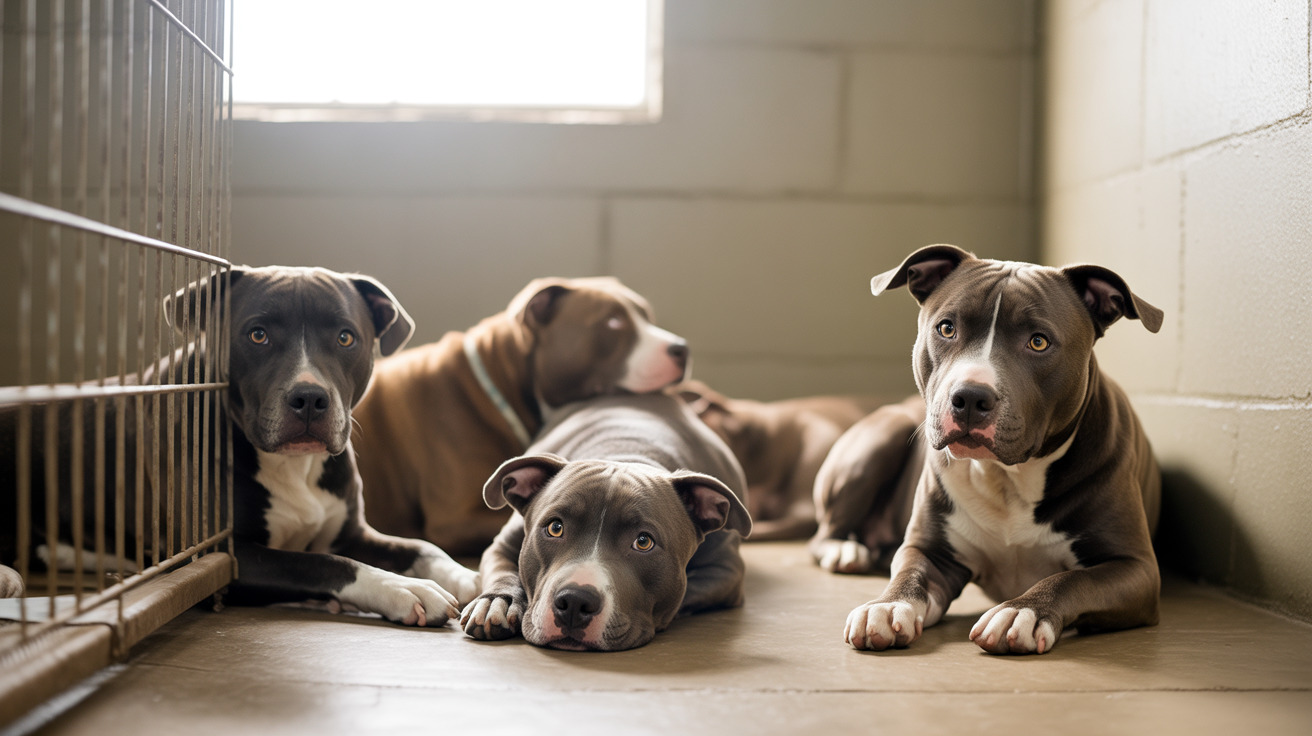The South Carolina Law Enforcement Division (SLED) has conducted a major operation targeting illegal animal fighting, resulting in the rescue of 47 dogs and the arrest of four individuals. This significant dogfighting South Carolina case demonstrates the ongoing battle against organized animal cruelty in the state, where investigators also seized drugs, guns, and money during the multi-faceted criminal investigation.
The rescue operation highlights the brutal reality of dogfighting rings that continue to operate across South Carolina, putting countless animals at risk while often connecting to other serious criminal activities. For pet parents and animal advocates, this case serves as a crucial reminder of the importance of recognizing warning signs and supporting enforcement efforts to protect vulnerable animals.
South Carolina Animal Fighting Laws and Enforcement
South Carolina maintains strict legal standards against animal fighting, with dogfighting classified as a felony offense. The state's comprehensive approach includes severe penalties for organizers, participants, and even spectators who attend these illegal events. Law enforcement agencies like SLED work closely with animal welfare organizations to investigate these complex cases that often involve multiple criminal enterprises.
The recent operation demonstrates how dogfighting investigations South Carolina authorities conduct often reveal connections to drug trafficking and weapons violations. This interconnected criminal activity makes these cases particularly challenging to prosecute, requiring specialized units and extensive coordination between agencies.
Signs of Dogfighting and Community Awareness
Recognizing potential dogfighting activity in communities can help prevent animal suffering and support law enforcement efforts. Dogs used in fighting operations typically show specific physical and behavioral indicators that concerned citizens should know how to identify.
Common warning signs include dogs kept in isolation with heavy chains or restraints, animals displaying unexplained injuries or scarring, and properties with unusual security measures or suspicious gathering patterns. However, community members should prioritize their safety and report concerns to authorities rather than attempting personal investigations.
Rescue Dogs from Dogfighting SC Recovery Process
When animals are rescued from fighting operations, they face a long road to recovery. Organizations like Humane World for Animals play crucial roles in providing immediate veterinary care and behavioral rehabilitation for these traumatized animals. The 47 dogs rescued in this operation will require extensive medical treatment and psychological support before they can potentially be placed in loving homes.
The rehabilitation process for fighting dogs involves addressing both physical wounds and deep psychological trauma from abuse and forced aggression. Many rescued animals can eventually become loving family pets with proper care, patience, and professional support from experienced animal welfare organizations.
Dogfighting and Drug Trafficking Connections
Modern dogfighting operations frequently intersect with other criminal activities, particularly drug trafficking and weapons violations. This SLED operation exemplifies how animal fighting rings often serve as hubs for multiple illegal enterprises, making comprehensive investigations essential for dismantling these networks completely.
The seizure of drugs, guns, and money alongside the animal rescue demonstrates the complex criminal ecosystem that surrounds illegal fighting operations. These connections make dogfighting cases particularly serious in the eyes of law enforcement and the court system.
How Pet Owners Can Help Combat Animal Fighting
Responsible pet ownership and community awareness play vital roles in preventing animal fighting operations from taking root in neighborhoods. Pet parents should ensure their animals are properly secured, microchipped, and never left unattended in situations where they could be stolen for fighting purposes.
Supporting legitimate animal welfare organizations, reporting suspicious activities through proper channels, and educating others about the realities of animal fighting all contribute to protecting vulnerable animals across South Carolina.
Frequently Asked Questions
- What legal penalties do people face for dogfighting in South Carolina? In South Carolina, dogfighting is a felony punishable by up to 5 years in prison and fines up to $5,000. Organizers, owners, and trainers can also have property seized, and spectators may face misdemeanor charges with escalating penalties for repeat offenses.
- How can I recognize signs of dogfighting activity in my community? Common indicators include dogs kept isolated or tethered with heavy chains, evidence of injuries or scars on dogs, sounds of animals fighting or distress, unusual security measures on properties, and suspicious gatherings, but it is safest to report concerns to authorities rather than investigate yourself.
- What happens to dogs rescued from dogfighting operations in South Carolina? Rescued dogs receive immediate veterinary and behavioral care from organizations like Humane World for Animals, are relocated to undisclosed safe shelters, and undergo physical and psychological rehabilitation before potential adoption due to severe neglect and injuries.
- How can citizens report suspected dogfighting or animal cruelty in South Carolina? Citizens should document suspicious activities without personal risk and report to local law enforcement, animal control, or state authorities such as SLED. Confidential hotlines like 1-888-CRIME-SC are available to assist in anonymous reporting.
This successful SLED operation represents a significant victory for animal welfare in South Carolina, but the fight against illegal animal fighting continues. By staying informed, reporting suspicious activities, and supporting legitimate animal welfare efforts, pet parents and community members can help ensure more animals receive the protection and care they deserve.






